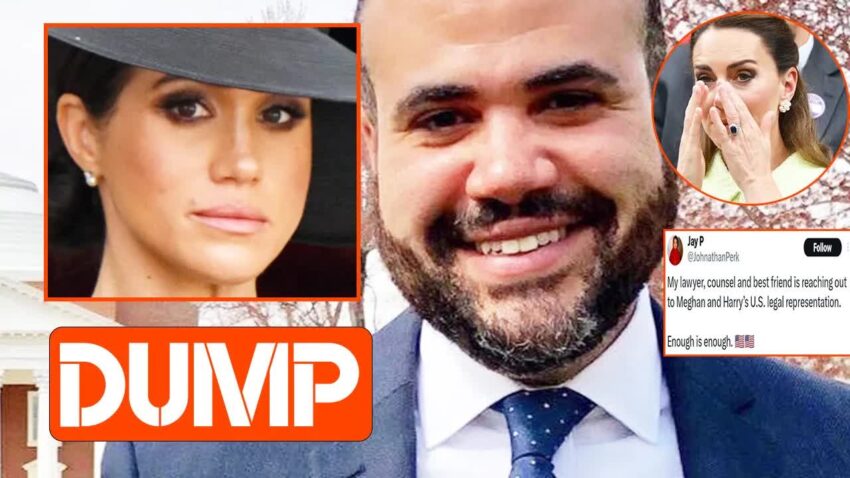The University of California Los Angeles’ race and equity director, Jonathan Perkins, found himself in hot water after questioning Princess Kate’s cancer admission.
Perkins, a self-proclaimed Meghan Markle enthusiast, took to Twitter to express doubt about Kate Middleton’s battle with cancer, sparking outrage among many.
His bold claim that Catherine may be fabricating her illness has drawn sharp criticism for its insensitivity towards those battling serious health issues.
Perkins, who identifies as a cancer survivor, has come under fire for his audacious remarks, suggesting he possesses the expertise to diagnose others based on mere news reports and videos.
His controversial statements have not gone unnoticed, with media outlets like the Daily Mail and New York Post calling him out for his public outbursts.
Despite facing backlash, Perkins is now seeking support from Meghan Markle and Prince Harry, hoping they will intervene in his escalating feud with the press.
However, Perkins may find his plea falling on deaf ears, as the Duke and Duchess of Sussex have a history of distancing themselves from individuals entangled in controversy.
Meghan Markle, known for cutting ties with her own father and close associates, prioritizes her public image and philanthropic endeavors over personal relationships.
Similarly, Prince Harry has distanced himself from his family and long-time friends in pursuit of a new life in Hollywood, portraying himself as a champion against tabloid scrutiny.
As Perkins scrambles to salvage his reputation and seek legal recourse against those challenging his opinions, he faces an uphill battle.
His recent claims of discrimination and cries for support from Meghan and Harry’s legal team may prove futile, given the couple’s track record of swiftly disassociating themselves from contentious situations.
The director’s attempts to elicit sympathy from the royal pair appear misguided, considering their propensity to distance themselves from individuals embroiled in public disputes.
The unfolding saga involving Jonathan Perkins mirrors a past incident during his time as a law student at the University of Virginia, where he fabricated a discriminatory profiling incident to draw attention to systemic issues.
The revelation of his previous deception raises questions about his credibility and motives behind his current actions.
Despite his efforts to defend his controversial statements, Perkins faces mounting scrutiny and skepticism regarding his conduct in both personal and professional capacities.
In light of the escalating controversy surrounding Perkins’ inflammatory remarks and questionable actions, the public remains divided on the appropriateness of his behavior as a figure in academia.
The clash between freedom of expression and responsible discourse has underscored the challenges faced by individuals in positions of influence, especially when their words and actions come under intense scrutiny.
As the fallout from Perkins’ statements continues to reverberate, the broader implications of his conduct on issues of accountability and ethical responsibility remain subjects of ongoing debate and reflection.
The unfolding narrative surrounding Jonathan Perkins serves as a cautionary tale about the perils of unchecked rhetoric and the consequences of wielding influence irresponsibly.
The intersection of personal beliefs, professional responsibilities, and public accountability highlights the complexities inherent in navigating contentious issues within academic and social spheres.
Perkins’ journey from outspoken critic to embattled figure underscores the delicate balance between exercising free speech and upholding ethical standards in a world increasingly shaped by digital discourse and instant scrutiny.
